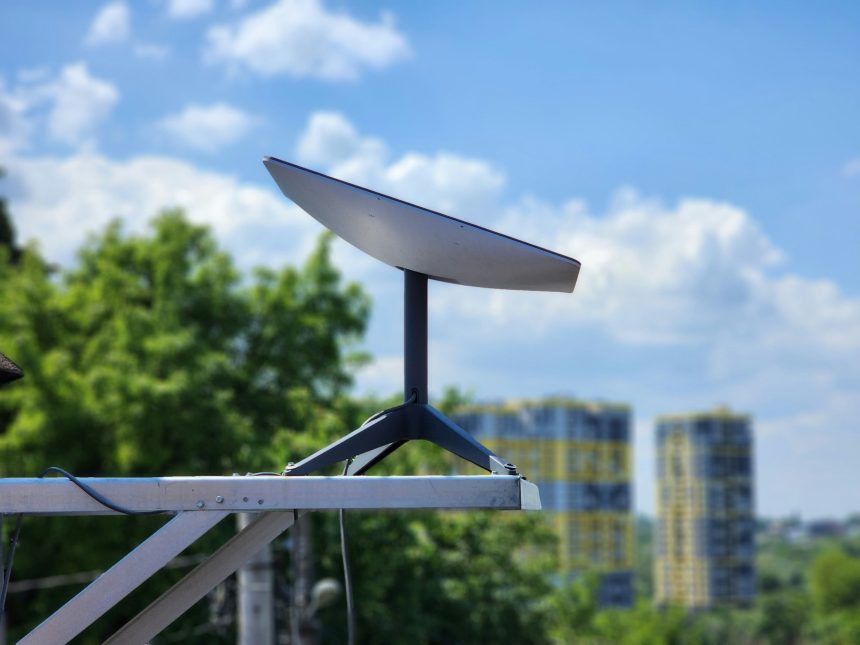Starlink South Sudan Offices: A Comprehensive Overview

With the increasing global demand for reliable and high-speed internet, Starlink’s satellite internet service, developed by SpaceX, is viewed as a game-changer in many countries, including South Sudan. Although South Sudan is still awaiting the official launch of Starlink, the establishment of local offices, partnerships, and authorized resellers is anticipated. This guide provides an in-depth look at what to expect from Starlink offices in South Sudan, their role in bringing satellite internet to underserved areas, and the future outlook for Starlink in the country.
1. Introduction to Starlink in South Sudan
South Sudan faces significant challenges in accessing reliable internet, especially in rural and remote regions where traditional internet infrastructure is either underdeveloped or nonexistent. Mobile data services, the current primary means of accessing the internet, are costly, slow, and often unreliable. This is where Starlink, a satellite-based internet service, offers a revolutionary solution.
By utilizing a constellation of low-Earth orbit (LEO) satellites, Starlink provides fast, low-latency internet that outperforms many of the current options available in South Sudan. The service is designed to serve underserved and remote areas, making it an ideal fit for the nation’s rural population. Although Starlink has yet to formally launch in South Sudan, its expected arrival has generated considerable interest.
A crucial part of Starlink’s expansion into new regions is the establishment of local offices. These offices provide vital services such as customer support, distribution of Starlink kits, technical assistance, and more. In this article, we explore what Starlink offices in South Sudan will offer and what customers can expect once the service becomes available.
2. The Role of Starlink Offices in South Sudan
Starlink offices in South Sudan will serve as the backbone of the satellite internet service, providing essential functions for users and businesses alike. Here are some of the primary roles these offices will play:
a) Customer Support and Inquiries
One of the main functions of Starlink offices is to offer customer support. As with any technology, users may face various challenges, including installation issues, service disruptions, or technical questions. Having local Starlink offices means that customers in South Sudan can access support in real-time and communicate with representatives who understand the unique challenges in the country.
Customer support in these offices will likely include:
- Assistance with setting up the Starlink kit (satellite dish, router, cables).
- Troubleshooting for connectivity or hardware-related issues.
- Information on service plans, upgrades, and renewals.
- Responding to inquiries about coverage in different regions of South Sudan.
b) Distribution and Sales of Starlink Kits

Once Starlink officially launches in South Sudan, its hardware kit will need to be widely distributed across the country. The Starlink offices will be responsible for stocking, selling, and distributing the kits, making them available to users in urban and rural areas alike.
The Starlink kit typically includes:
- A satellite dish.
- A Wi-Fi router.
- Required cables and mounts.
- Instructions for setup.
These kits are essential for connecting to Starlink’s satellite network, and having local offices ensures that they are easily accessible without long waits for international shipping. The Starlink offices will also provide information on the latest deals, payment plans, and other offerings for customers.
c) Installation Services
While some users may opt to install their Starlink kit on their own, others may prefer professional installation, particularly in more rural and difficult-to-reach areas. Starlink offices are expected to provide or coordinate professional installation services. This would involve certified technicians who can install the satellite dish, ensure optimal placement for maximum signal strength, and configure the system for seamless internet connectivity.
Professional installation may also be necessary for users unfamiliar with satellite technology or those facing challenges in securing the dish in suitable locations, such as roofs or poles.
d) Technical Assistance and Repairs
Starlink offices will likely also handle technical assistance and repairs for Starlink equipment. This includes diagnosing hardware issues, fixing faulty devices, and helping users maintain their satellite dish for optimal performance. For example, satellite dishes may require re-alignment if they shift due to weather conditions, or users may need replacement parts for damaged hardware.
Having Starlink offices in South Sudan ensures that customers can access these services without having to ship equipment overseas for repairs, significantly reducing downtime.
3. Potential Locations for Starlink Offices in South Sudan

While Starlink has not officially announced office locations in South Sudan, it is likely that the first offices will be set up in major urban centers and cities. The following are the most likely candidates for Starlink office locations:
a) Juba
As the capital and largest city in South Sudan, Juba is the most probable location for Starlink’s first office in the country. Juba serves as the nation’s commercial and administrative hub, making it a strategic location for Starlink’s operations. A Starlink office in Juba would serve a large portion of the population, including government offices, businesses, and educational institutions, which all rely heavily on internet access.
b) Wau
Wau is one of the largest cities in South Sudan and serves as a regional center for the Bahr el Ghazal region. Given its size and importance, Wau is a logical location for a Starlink office, especially to provide services to users in the western part of the country. Wau’s economic significance and growing demand for internet connectivity could make it a target city for Starlink’s early expansion.
c) Malakal
Located in the Upper Nile region, Malakal is another potential location for a Starlink office. The city is a significant commercial center and would benefit greatly from improved internet services, particularly as it continues to recover from past conflicts. A Starlink office in Malakal would help serve customers in the northeastern part of the country.
d) Rural Areas
While urban centers are likely to be the first areas served by Starlink offices, one of the service’s major advantages is its ability to reach rural and remote locations. Eventually, Starlink offices or resellers may be established in more remote regions to cater to the population outside of South Sudan’s major cities, where internet connectivity is most needed.
4. How to Stay Updated on Starlink Offices in South Sudan
As Starlink’s services expand into South Sudan, it will be essential for users to stay informed about the latest developments, including office locations, authorized resellers, and service updates. Here are a few ways to stay updated:
a) Official Starlink Website
The official Starlink website will provide the most reliable and up-to-date information on office locations, service availability, and authorized resellers. Users can also sign up for updates via the website to be notified when Starlink becomes available in their region.
b) Social Media Channels
Starlink and SpaceX maintain active social media profiles on platforms such as Twitter, Facebook, and Instagram. These platforms regularly announce new market launches, office openings, and service expansions.
c) Local News and Tech Outlets
As South Sudan awaits the arrival of Starlink, local news outlets and technology blogs will provide coverage of important milestones, including the opening of offices or partnerships with local companies.
5. Potential Partnerships with Local Businesses
In addition to establishing its own offices, Starlink may choose to partner with local South Sudanese businesses to enhance service delivery. This could include working with telecommunications companies, tech retailers, or logistics firms. These partnerships could help Starlink reach customers in more remote areas and provide better support across the country.
For example, South Sudanese telecommunications companies such as MTN South Sudan or Zain South Sudan may collaborate with Starlink to offer bundled services or serve as authorized resellers for Starlink hardware. Similarly, local technology retailers or e-commerce platforms might stock Starlink kits, making them more accessible to users.
6. Conclusion
Starlink’s expansion into South Sudan represents a significant step forward in addressing the country’s internet challenges. The establishment of Starlink offices will be essential in providing customer support, selling and distributing Starlink kits, offering installation services, and handling technical issues. While official office locations have yet to be announced, Juba, Wau, and Malakal are likely to be key cities where Starlink’s operations will be centered.
As Starlink continues to develop its presence in South Sudan, local businesses, government offices, and individual users will greatly benefit from improved internet connectivity, contributing to the country’s digital transformation. Keep an eye on Starlink’s website and social media for future announcements on office locations, partnerships, and service availability across South Sudan.